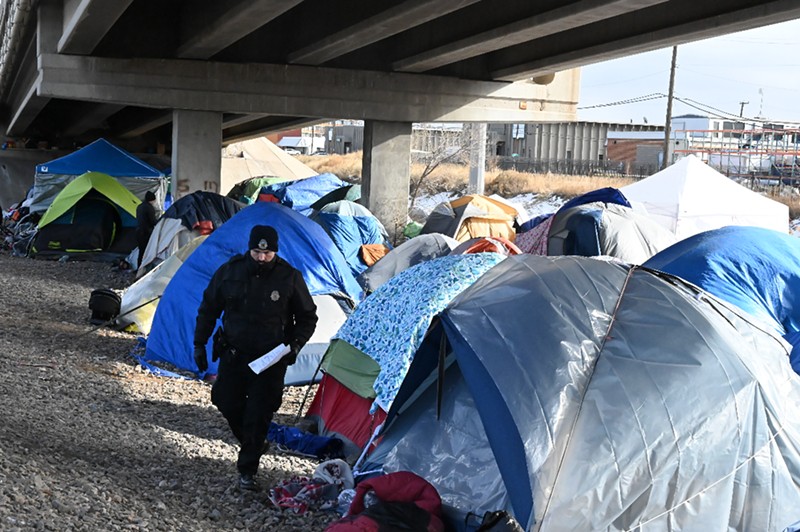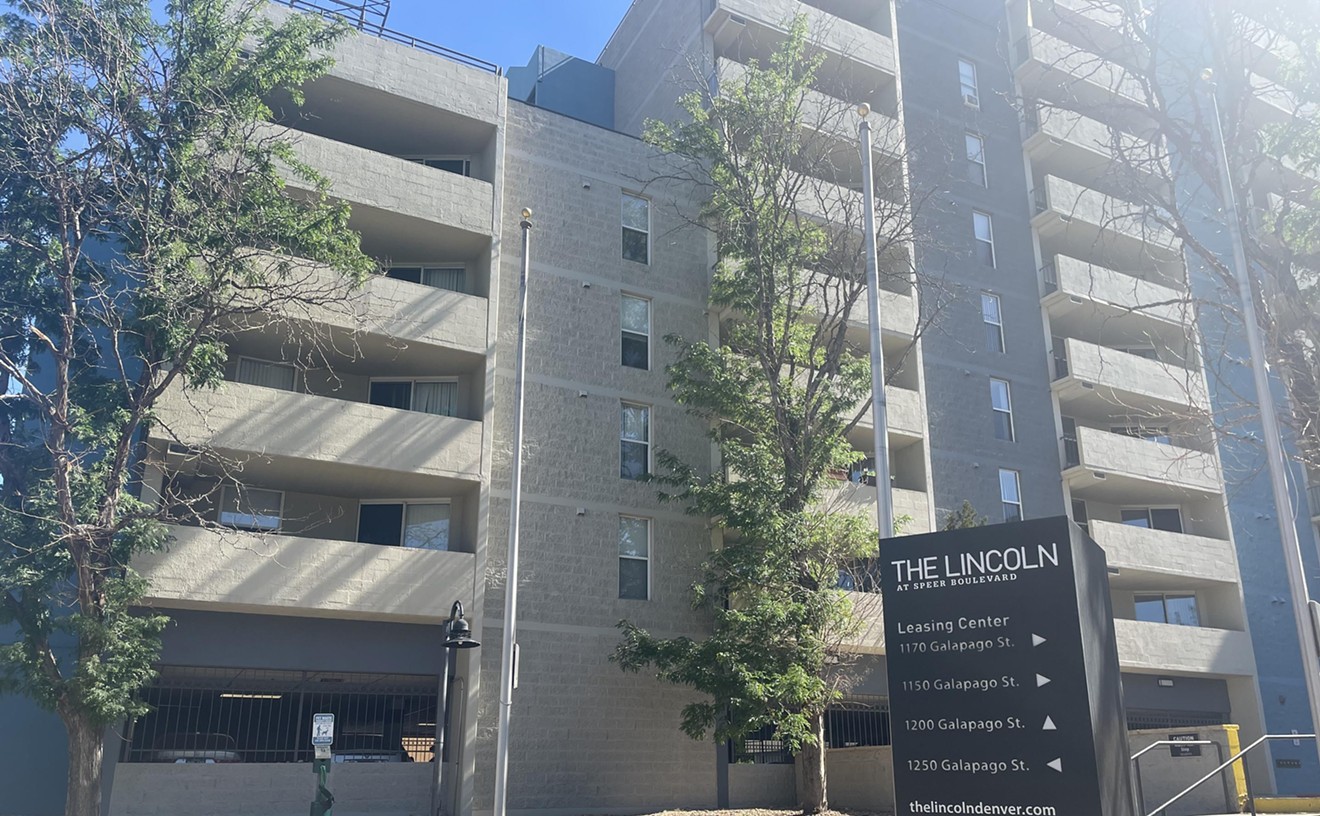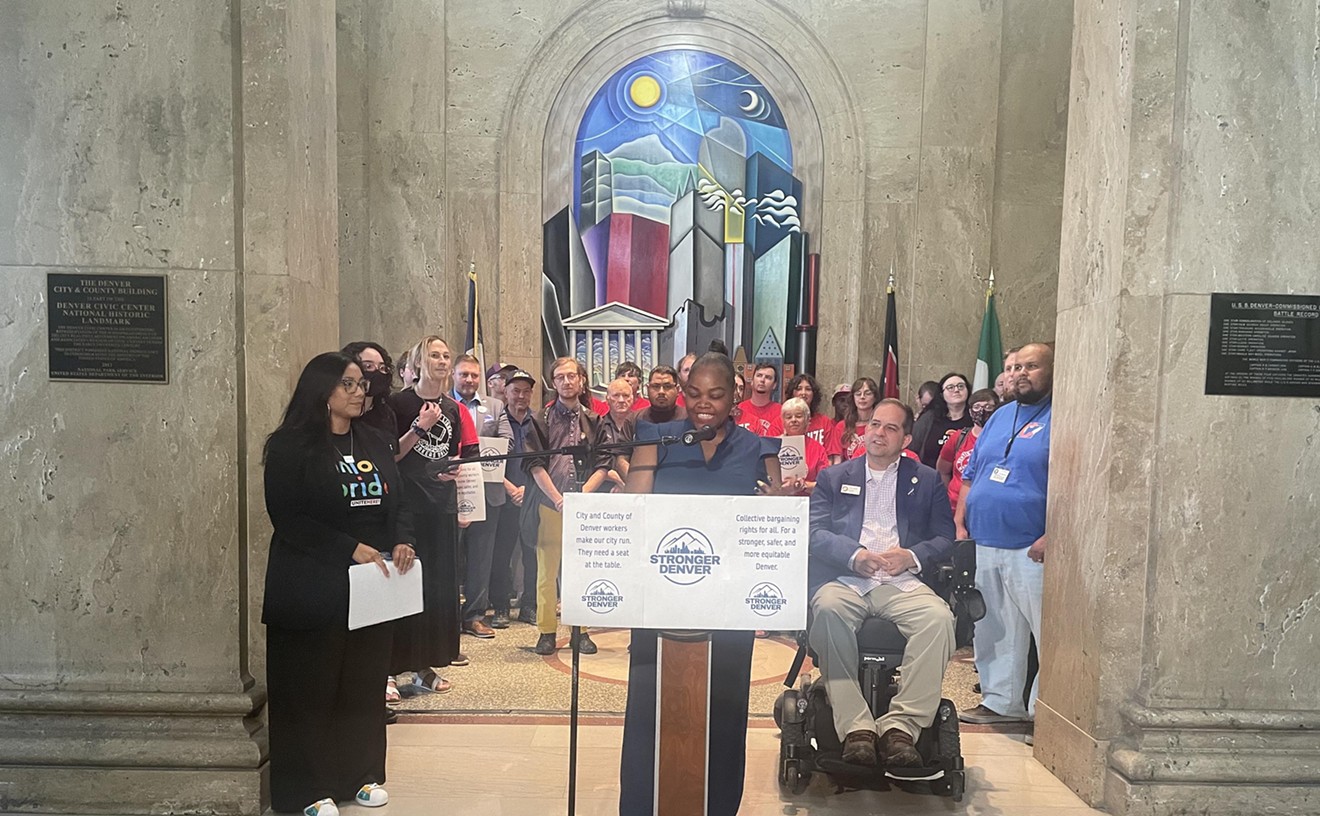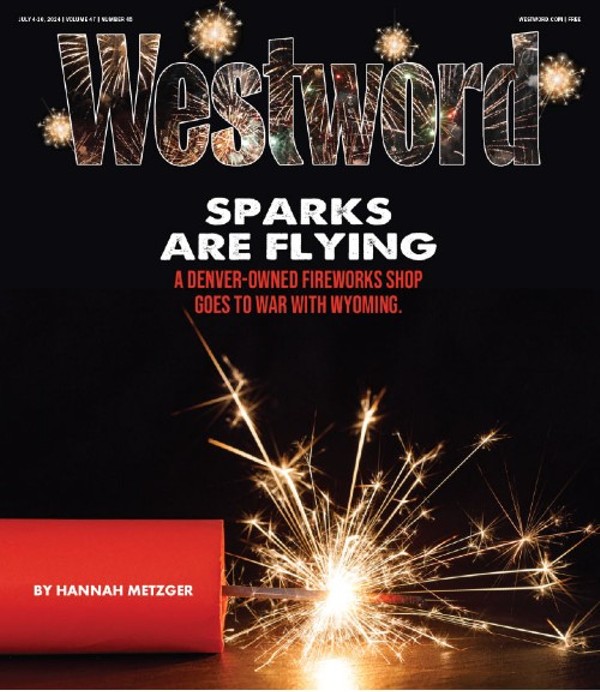As the temperatures dropped on Thursday, January 11, Denver police officers went from tent to tent in an encampment nestled in the underpass of West 48th Avenue in Globeville. About fifty migrants had been living there, and the officers wanted to make sure that its residents were all taking shelter indoors.
As a result of the cold weather, Denver reached its largest migrant shelter population ever on the afternoon of January 12, says Jon Ewing, spokesperson for the Department of Human Services, which handles the city's migrant response.
Denver first declared a state of emergency regarding the flood of migrants from south of the border in December 2022. The number in city shelters has been steadily climbing since mid-November, when around 2,000 migrants were staying in the city. This week started with about 4,600 migrants in Denver's ten shelters.
The city now has 5,000 migrants in shelters, spread across ten facilities, including more than a half-dozen motels and hotels converted into non-congregate shelters and two locations being used as congregate shelters.
"This current period that we're in is the highest we've ever seen," Ewing says. "We opened two congregate sites for migrants experiencing homelessness not even ten days ago."
Denver has stopped kicking out migrants after the usual fourteen-day limit imposed on individuals at shelters. "The city's cold-weather shelter plan is in activation, which also means we aren't discharging anyone from shelters," Ewing says. "It turned out to be a relatively slower week for arrivals, but it's incredibly busy in other areas as we deal with the cold."
In an attempt to bring migrants out of the cold, the city closed two big encampments this month. The first encampment clearance was on January 3, when about 400 migrants were moved out of tents set up near Speer Boulevard and Zuni Street. They were offered either a ticket to another location or a place to stay. About 300 were taken to shelter, including about sixty families that went to hotels.
The second encampment sweep started in Globeville on January 10, near West 48th Avenue and Fox Street. By the next day, the city had moved fifty migrants into a congregate shelter. According to Ewing, the city isn't aware of any other large migrant encampments.
Despite Denver's shelters being maxed out like never before, Ewing says it's been a slow week: "This week really is the exception as far as new arrivals go, and, unfortunately, I'm pretty sure it's going to stay the exception," he says.
More than 37,400 migrants have come through Denver since the emergency declaration in December 2022. Buses arriving from Texas have dropped off as many as 200 migrants on some days.
So far this month, 29 buses carrying migrants have arrived in Denver. Often the buses drop migrants off at times and places that are inconvenient for City of Denver staff — like the Webb Building in the middle of the night — but "they've been better lately about taking them to the shelter designated for overnight arrivals," Ewing notes.
But there are bigger challenges ahead. If the rate of migration continues, the city could end up spending upwards of $180 million in 2024, according to Mayor Mike Johnston, who notes that Denver is seeing more migrants per capita than any other city outside of a border town.
Denver has spent at least $38 million — some scraped together from leftover federal COVID relief — over the past year on sheltering migrants and offering services. The federal government has offered to reimburse about $9 million of that.
As a result of the cold weather, Denver reached its largest migrant shelter population ever on the afternoon of January 12, says Jon Ewing, spokesperson for the Department of Human Services, which handles the city's migrant response.
Denver first declared a state of emergency regarding the flood of migrants from south of the border in December 2022. The number in city shelters has been steadily climbing since mid-November, when around 2,000 migrants were staying in the city. This week started with about 4,600 migrants in Denver's ten shelters.
The city now has 5,000 migrants in shelters, spread across ten facilities, including more than a half-dozen motels and hotels converted into non-congregate shelters and two locations being used as congregate shelters.
"This current period that we're in is the highest we've ever seen," Ewing says. "We opened two congregate sites for migrants experiencing homelessness not even ten days ago."
Denver has stopped kicking out migrants after the usual fourteen-day limit imposed on individuals at shelters. "The city's cold-weather shelter plan is in activation, which also means we aren't discharging anyone from shelters," Ewing says. "It turned out to be a relatively slower week for arrivals, but it's incredibly busy in other areas as we deal with the cold."
Denver has extended the activation of its cold weather shelters through Monday, January 15; the city also extended the hours of its two cold weather shelters. Previously, homeless individuals could only stay there from 7 p.m. to 7 a.m., but the shelters are now open around the clock until at least Tuesday.
"No one is being left out in the cold," Ewing says. "We made space through the congregate sites for migrants, and we have the cold-weather shelter plan going on so as to create more space for everyone."
While some homeless individuals are also in the cold-weather shelters, Ewing says that none of them are being pushed out to make room for migrants, who have their own space in the two new congregate sites. "If you want out of the cold this weekend, there will be a place for you," he adds. "We do not want people out in the cold, and we are encouraging everyone to come inside."
The two cold-weather shelters are the Denver Navigation Campus, at 4040 Quebec Street (formerly a Doubletree Hotel) and New Directions, at 4595 Quebec Street (a former Best Western). To access them, people must go to the city's "front door" shelters: individual men to the Lawrence Street Community Center, at 2222 Lawrence Street; individual women to the Samaritan House, at 2301 Lawrence Street; and youth to Urban Peak, at 2100 Stout Street. The St. Francis Center, at 2323 Curtis Street, will also bus people to shelters between 6:30 and 9 p.m. (Find more information online.)
"No one is being left out in the cold," Ewing says. "We made space through the congregate sites for migrants, and we have the cold-weather shelter plan going on so as to create more space for everyone."
While some homeless individuals are also in the cold-weather shelters, Ewing says that none of them are being pushed out to make room for migrants, who have their own space in the two new congregate sites. "If you want out of the cold this weekend, there will be a place for you," he adds. "We do not want people out in the cold, and we are encouraging everyone to come inside."
The two cold-weather shelters are the Denver Navigation Campus, at 4040 Quebec Street (formerly a Doubletree Hotel) and New Directions, at 4595 Quebec Street (a former Best Western). To access them, people must go to the city's "front door" shelters: individual men to the Lawrence Street Community Center, at 2222 Lawrence Street; individual women to the Samaritan House, at 2301 Lawrence Street; and youth to Urban Peak, at 2100 Stout Street. The St. Francis Center, at 2323 Curtis Street, will also bus people to shelters between 6:30 and 9 p.m. (Find more information online.)
In an attempt to bring migrants out of the cold, the city closed two big encampments this month. The first encampment clearance was on January 3, when about 400 migrants were moved out of tents set up near Speer Boulevard and Zuni Street. They were offered either a ticket to another location or a place to stay. About 300 were taken to shelter, including about sixty families that went to hotels.
The second encampment sweep started in Globeville on January 10, near West 48th Avenue and Fox Street. By the next day, the city had moved fifty migrants into a congregate shelter. According to Ewing, the city isn't aware of any other large migrant encampments.
More than 37,400 migrants have come through Denver since the emergency declaration in December 2022. Buses arriving from Texas have dropped off as many as 200 migrants on some days.
So far this month, 29 buses carrying migrants have arrived in Denver. Often the buses drop migrants off at times and places that are inconvenient for City of Denver staff — like the Webb Building in the middle of the night — but "they've been better lately about taking them to the shelter designated for overnight arrivals," Ewing notes.
But there are bigger challenges ahead. If the rate of migration continues, the city could end up spending upwards of $180 million in 2024, according to Mayor Mike Johnston, who notes that Denver is seeing more migrants per capita than any other city outside of a border town.
"If the pace of this humanitarian crisis need continues in 2024 as it has over the past few months of 2023, Denver's migrant sheltering expenses could reach as high as $15 million per month," says Laura Swartz, spokesperson for the Denver Department of Finance. "While we are advising newcomers that our migrant shelters are nearly at capacity, we are continuing to see a steady stream of new arrivals."
Johnston has appealed for more federal funding, and gone on national news shows to plead his case (most recently on January 12's The Source with Kaitlan Collins on CNN, reacting to comments by Texas Governor Greg Abbott suggesting shooting people who cross the border, and saying that Abbott showed "hostility" towards the migrants). But according to Swartz, Johnston isn't waiting for help from the feds, and has started asking agencies to look for possible cuts in their budgets.
"Mayor Johnston has been relentlessly advocating for an increase in federal support as well as expansions of work authorizations for migrants," Swartz says. "However, given the recent surge, we cannot afford to wait for federal interventions, and out of an abundance of caution, he has asked city agencies to begin evaluating areas where we can put measures in place to ensure we will have the funds needed to address this challenge and maintain a balanced budget."
"Mayor Johnston has been relentlessly advocating for an increase in federal support as well as expansions of work authorizations for migrants," Swartz says. "However, given the recent surge, we cannot afford to wait for federal interventions, and out of an abundance of caution, he has asked city agencies to begin evaluating areas where we can put measures in place to ensure we will have the funds needed to address this challenge and maintain a balanced budget."
Denver has spent at least $38 million — some scraped together from leftover federal COVID relief — over the past year on sheltering migrants and offering services. The federal government has offered to reimburse about $9 million of that.












